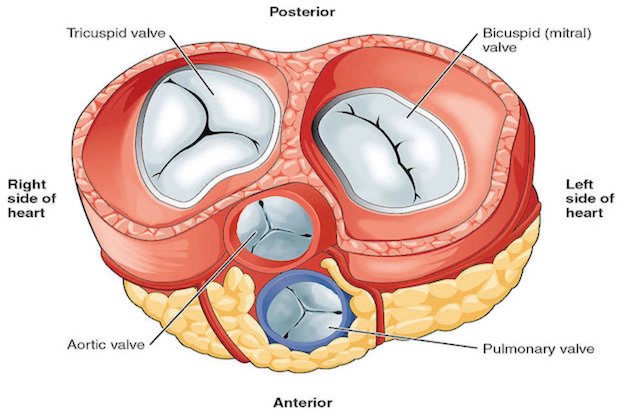Table of Contents
What is Heart Disease?
Heart disease is a condition that can affect the whole body. Several conditions fall under the umbrella of heart disease, including heart rhythm problems, congenital heart defects, coronary artery disease, and blood vessel diseases. When the heart begins to malfunction, it can cause problems throughout the entire body. The risk for heart disease increases as a person ages, but plaque and excessive cholesterol in the arteries can also cause heart disease. The heart is integral in every function of the human body, so if organs cannot receive enough blood, then several disorders may occur.
There are several different types of heart medications and your doctor may recommend captopril, Bystolic (nebivolol), or Coreg (carvedilol). Read on to learn more about disorders related to heart disease. [1]
Those with heart disease are at a much greater risk of heart attacks and strokes. For many people, the possibility of having a coronary event can weigh heavily on the mind. Stress and anxiety often follow a heart disease diagnosis. Stress can increase adrenaline and cortisol, two hormones that affect your blood pressure and heart rate. If your heart disease diagnosis is causing you emotional distress, it can quickly cause physical problems. Doctors should monitor your condition to keep track of your heart health. Otherwise, your worst fears about your heart may come true. [2] People with pre-existing heart problems may also develop cardiomyopathy. This condition involves the hardening of the heart muscle, making it harder for the heart to pump blood to the rest of the body. Heart failure may occur as a result of cardiomyopathy. You may be experiencing cardiomyopathy if you have the following symptoms: Those with a family history of cardiomyopathy, prior heart attacks, uncontrolled high blood pressure, or viral, bacterial infections are more at risk of cardiomyopathy. [4] Rheumatic disease is caused by rheumatic fever. Rheumatic fever is an inflammatory disease that affects the connective tissues in the heart and the joints, skin, or brain. When rheumatic fever affects the heart, the valves can become inflamed and scarred. Over time this can cause narrowing of the heart valve and make it more difficult to pump blood around the body. Rheumatic fever is typical in children 5 to 15 years old but is not common in the United States. If this fever is left untreated, then heart disease can occur. Symptoms of rheumatic heart disease are similar to other heart conditions, including: Marfan syndrome is a connective tissue disorder that can begin to affect the body's organs and structures. The heart, blood vessels, skeleton, and heart are most commonly affected. Those with Marfan’s have a distinct appearance and are usually tall and thin with long arms, legs, fingers, and toes. Over time, Marfan’s can put stress on the aorta, one of the largest vessels in the body. This damage can happen slowly, so those with Marfan’s must have regular checkups with their doctor. This condition is genetic, and people with Marfan’s have a connective tissue defect. Symptoms of Marfan syndrome include: Marfan’s can affect every part of the body, but it can cause heart problems because it can weaken the aorta and lead to aortic dissection or valve malfunction. An aortic dissection can occur when the aorta tears, causing severe pain in the chest or back. Abnormal heart valve function can also lead to poor blood circulation. [6] You are at a higher risk of heart disease if you are born with or develop heart valve problems. Valvular heart disease occurs when one of the four heart valves is damaged or defective. The four heart valves include the mitral, aortic, tricuspid, and pulmonary. The mitral and tricuspid control blood flow between the atria and chambers of the heart. The pulmonary valve controls the blood flow from the lungs while the aortic valve controls blood flow from the heart and the aorta. Symptoms of valvular heart disease include: Rheumatic fever can increase your risk of heart valve problems as well as rheumatoid arthritis, lupus, or syphilis. It is essential to get treatment if you have valve problems and experience a sore throat and fever that lasts more than 48 hours. [7] Congestive heart failure occurs when the heart does not pump blood as well as it should. Narrowed arteries and high blood pressure can make the heart gradually weak and stiff. Someone can live with heart failure for a long time with the proper medications and lifestyle changes. Heart failure typically develops as a result of several other heart conditions. As heart problems progress, the heart cannot keep up with the normal demands placed on it. Heart failure can begin several years after the onset of heart problems. You may be experiencing heart failure if the following symptoms are present: Heart failure can be improved if you limit sodium intake and get regular exercise. The prognosis for heart failure can be grim, but many can live for years with heart failure if they follow their treatment plan. [8] The content in this article is intended for informational purposes only. This website does not provide medical advice. In all circumstances, you should always seek the advice of your physician and/or other qualified health professionals(s) for drug, medical condition, or treatment advice. The content provided on this website is not a substitute for professional medical advice, diagnosis or treatment.
Anxiety and Depression
Cardiomyopathy
Rheumatic Heart Disease

Marfan Syndrome
Valvular Heart Disease

Heart Failure
